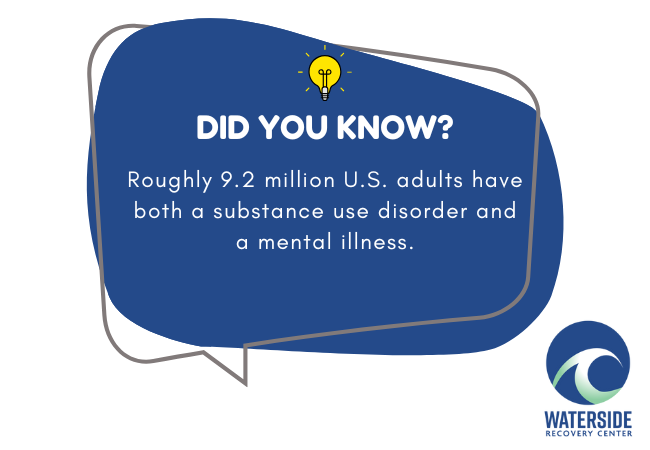Completing an opiate addiction treatment program is a powerful achievement—but it’s just the beginning of a new, sober life. The real work often begins after formal treatment ends. Recovery is a long-term journey that requires structure, self-awareness, support, and purpose.
At Waterside Recovery, we help clients prepare for this next chapter through comprehensive care, individualized planning, and ongoing support. Whether you’ve completed our Day Treatment Program, Afternoon Treatment Program, or Outpatient Treatment Program in Massachusetts, we’re here to help you build a fulfilling, substance-free life.
Why Life After Treatment Matters
While detox and therapy help you break free from physical dependence and emotional wounds, staying sober requires day-to-day strategies, habits, and support systems. Without them, the risk of relapse increases—especially during transitions.
Life after treatment often brings new challenges:
- Rebuilding relationships
- Finding purpose and employment
- Facing triggers without clinical supervision
- Navigating boredom, anxiety, or depression without substances
That’s why a recovery plan must extend beyond treatment—and why our Massachusetts Addiction Treatment Center focuses so heavily on aftercare and real-world preparation.
1. Creating Structure and Routine
Opiate addiction often brings chaos, and recovery thrives on structure.
Clients are encouraged to:
- Follow a consistent daily routine (sleep, meals, exercise)
- Use planners or digital tools to track appointments, goals, and activities
- Set short-term and long-term goals to maintain momentum
- Continue group or individual therapy to maintain emotional balance
These habits promote stability and reduce impulsive or idle behavior, especially for those graduating from our Afternoon Treatment Program in Massachusetts and re-entering work or school environments.
2. Establishing a Support System
No one stays sober alone. Long-term recovery depends on connection, not isolation.
Support systems can include:
- Sober peers or alumni from treatment programs
- Therapists or sponsors
- Support groups (12-step, SMART Recovery, relapse prevention)
- Trusted friends and family members
Waterside Recovery helps clients maintain contact with peers through alumni check-ins, referrals to community meetings, and therapy continuity via our Outpatient Treatment Program Massachusetts.
3. Continuing Therapy and Counseling
Ongoing therapy allows clients to:
- Address new triggers as they arise
- Process real-world stressors in a safe space
- Work on unresolved trauma or mental health issues
- Reinforce relapse prevention techniques
Many clients step down from our Day Treatment Program Massachusetts into a lower level of care while still attending weekly sessions. This gradual transition helps them stay grounded and emotionally supported.
4. Avoiding High-Risk People, Places, and Situations
One of the most difficult but necessary changes involves letting go of environments and relationships that threaten sobriety. This may include:
- Avoiding bars, old neighborhoods, or people who use
- Blocking contacts who encourage risky behavior
- Being honest about what situations feel unsafe
In treatment, clients build awareness of these high-risk triggers—and in aftercare, they learn how to set boundaries and choose recovery-friendly spaces.
5. Building Healthy Habits and Hobbies
A key part of post-treatment life is rediscovering joy in sobriety. Many people begin using drugs because they lacked healthy outlets for stress or emotion.
Clients are encouraged to:
- Reconnect with old passions (music, art, sports)
- Try new sober activities (yoga, hiking, volunteering)
- Explore mindfulness practices (meditation, breathwork)
- Prioritize physical wellness with sleep, nutrition, and movement
Our Addiction Treatment Center Massachusetts offers wellness-focused programming that helps clients develop these life-enhancing routines before discharge.
6. Pursuing Purpose Through Work, Education, or Service
Sobriety without direction can feel stagnant. That’s why our counselors work with clients to:
- Rebuild résumés and prepare for job interviews
- Explore educational or training programs
- Set career or life goals
- Volunteer or give back to the recovery community
Purpose is a powerful antidote to cravings. Many alumni from our Drug Addiction Treatment Program Massachusetts find renewed meaning through helping others in recovery.
7. Having a Relapse Prevention Plan
Relapse does not mean failure—but having a plan in place makes all the difference. Clients are taught to:
- Recognize early warning signs (irritability, withdrawal, cravings)
- Use coping tools or reach out for help
- Attend support groups or counseling when struggling
- Identify 3–5 people to call in crisis moments
This plan is developed during treatment and refined as clients transition into aftercare, ensuring they feel confident and prepared.
8. Staying Connected to Waterside Recovery
We believe that recovery is ongoing—and we’re here for the long haul.
Our team supports graduates through:
- Continued access to our Outpatient Treatment Program Massachusetts
- Referrals to sober housing or transitional living
- Alumni events, check-ins, and peer support options
- Refresher or booster therapy sessions when needed
Clients who stay connected are more likely to remain engaged, hopeful, and resilient through life’s ups and downs.

Rebuilding Mental Health in Early Recovery
Opiate addiction often masks underlying mental health struggles such as anxiety, depression, PTSD, or bipolar disorder. In early recovery, these issues may resurface.
That’s why mental health support remains a critical part of post-treatment care. Continuing therapy—especially through our Outpatient Treatment Program in Massachusetts—allows clients to:
-
Address lingering trauma or grief
-
Learn coping skills for mood regulation
-
Treat psychiatric conditions without medication misuse
-
Build emotional resilience for long-term sobriety
Recovery is more sustainable when mental wellness is prioritized alongside sobriety.
Mending and Strengthening Relationships
Addiction often fractures family, romantic, and friendship bonds. After treatment, clients must work to rebuild trust and repair communication.
At Waterside Recovery, we encourage:
-
Ongoing family therapy or couples counseling
-
Setting and respecting boundaries
-
Making amends when appropriate
-
Being patient with the process of reconciliation
Through compassionate guidance, clients in our Day and Afternoon Treatment Programs in Massachusetts learn to foster healthier, more honest relationships.
Handling Triggers, Stress, and Emotional Setbacks
Life after treatment will include challenges—stressful jobs, grief, loneliness, or conflict. Without the numbing effects of substances, it’s essential to develop emotional coping strategies, such as:
-
Mindfulness and grounding exercises
-
Journaling or expressive outlets
-
Reaching out to sponsors, peers, or therapists
-
Attending support meetings on tough days
Waterside Recovery equips clients with relapse prevention plans and coping toolkits during treatment, so they feel ready to manage life’s inevitable ups and downs.
Exploring Identity Beyond Addiction
Many clients enter recovery unsure of who they are without drugs. One of the most powerful outcomes of treatment is rediscovering identity, values, and passions.
We help clients explore:
-
Personal values and spirituality
-
Creative interests and talents
-
Career aspirations or service paths
-
New roles—like mentor, leader, or advocate
This journey often begins in treatment and deepens in aftercare. Our Massachusetts Addiction Treatment Center fosters personal growth through therapy, peer connection, and purposeful goal-setting.
Embracing the Recovery Lifestyle Long-Term
Sustained sobriety requires ongoing commitment, not just abstinence. Building a recovery lifestyle means:
-
Staying active in sober communities (AA, NA, SMART, alumni groups)
-
Celebrating milestones (30 days, 1 year, etc.)
-
Giving back by mentoring others or sharing your story
-
Remaining open to support, growth, and change
We empower our alumni to embrace sobriety as a lifestyle—not a sentence—filled with opportunities to grow, connect, and thrive.
Why Choose Waterside Recovery?
Waterside Recovery is more than a treatment center—we’re a lifelong recovery partner.
Here’s what sets us apart:
- Personalized treatment plans and aftercare support
- Day, Afternoon, and Outpatient program flexibility
- Dual diagnosis care for mental health and substance use
- Strong alumni network and transitional planning
- Holistic and skill-building therapies for whole-life wellness
Whether you’re just beginning or ready to build a new life after treatment, our team is committed to walking with you—step by step.
Final Thoughts
Sobriety is not the end of something—it’s the beginning of everything. After treatment, building a life in recovery means choosing clarity over chaos, connection over isolation, and purpose over pain.
At Waterside Recovery, we don’t just help you get clean—we help you stay free, fulfilled, and supported. Call 866.671.8620 today to learn how we can support your journey beyond treatment. Let’s build your sober future—together.
FAQ on Opiate Recovery
What happens after I complete opiate addiction treatment?
After completing treatment, clients begin building a new life with structure, support, healthy routines, and continued therapy. Waterside Recovery offers outpatient and alumni services to guide this transition.
Why is aftercare important in recovery?
Aftercare helps prevent relapse by providing continued accountability, emotional support, and tools to handle life stressors. It bridges the gap between clinical treatment and real-world sobriety.
How can I avoid relapse after treatment?
Avoiding relapse involves recognizing triggers, continuing therapy, engaging in support groups, setting boundaries, and following a relapse prevention plan developed during treatment.
What support does Waterside Recovery offer after treatment?
We provide ongoing therapy through our Outpatient Treatment Program Massachusetts, access to alumni resources, peer support groups, and referrals for community-based services and sober living.
Will I still need therapy after completing treatment?
Yes. Many people benefit from ongoing individual or group counseling to address challenges in relationships, work, or mental health. Continued therapy helps maintain emotional stability and prevent relapse.
How do I rebuild relationships after addiction?
Rebuilding trust takes time and accountability. Waterside Recovery offers family and couples therapy, communication skill-building, and emotional support to repair broken relationships.


